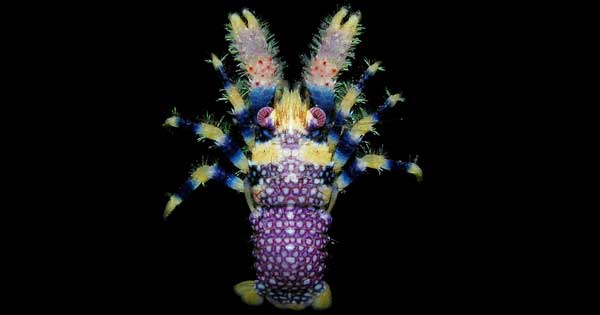
Artists and scientists may soon find common ground on a small South Pacific island near Tahiti. The lush, untamed topography of Moorea is already attracting scientists on a comprehensive search to collect samples of the island’s nonmicrobial life. Meanwhile, in an effort to promote the beauty of biodiversity, the Smithsonian Institution may send eight to 10 artists to interpret the biological bounty. The artists might want to interpret Galathea pilosa (above), aka “squat lobster.” A scientist photographed this specimen darting among the branches of dead coral colonies off Moorea’s north coast.
Biologist Gustav Paulay and his colleagues in the Moorea Biocode Project believe the 83-square-mile island hosts an ideal level of complexity to correlate to the earth as a whole. Using a method called DNA barcoding, they isolate a short string of DNA and use it to identify a sample as belonging to a specific species. They believe an encyclopedic barcode record of nearly every organism will establish the island as an ideal test site for new technologies and further our understanding of how global warming is affecting nature. Their work is part of a larger effort to cultivate methods for creating a barcode inventory of all life on earth.
The Moorea Biocode Project was launched with a $5.2 million, three-year grant from the Gordon and Betty Moore Foundation. In order to get artists in on the deal, the biologists are willing to share their grant. If the Smithsonian accepts the project, artists in various media will be invited to Moorea and an exhibition of their work will be held at the Smithsonian Natural History Museum in 2013. “Artists and scientists are on parallel tracks,” says Chris Meyer, director of the Moorea Biocode Project. “We just use different media. Worms instead of clay or paint.”

